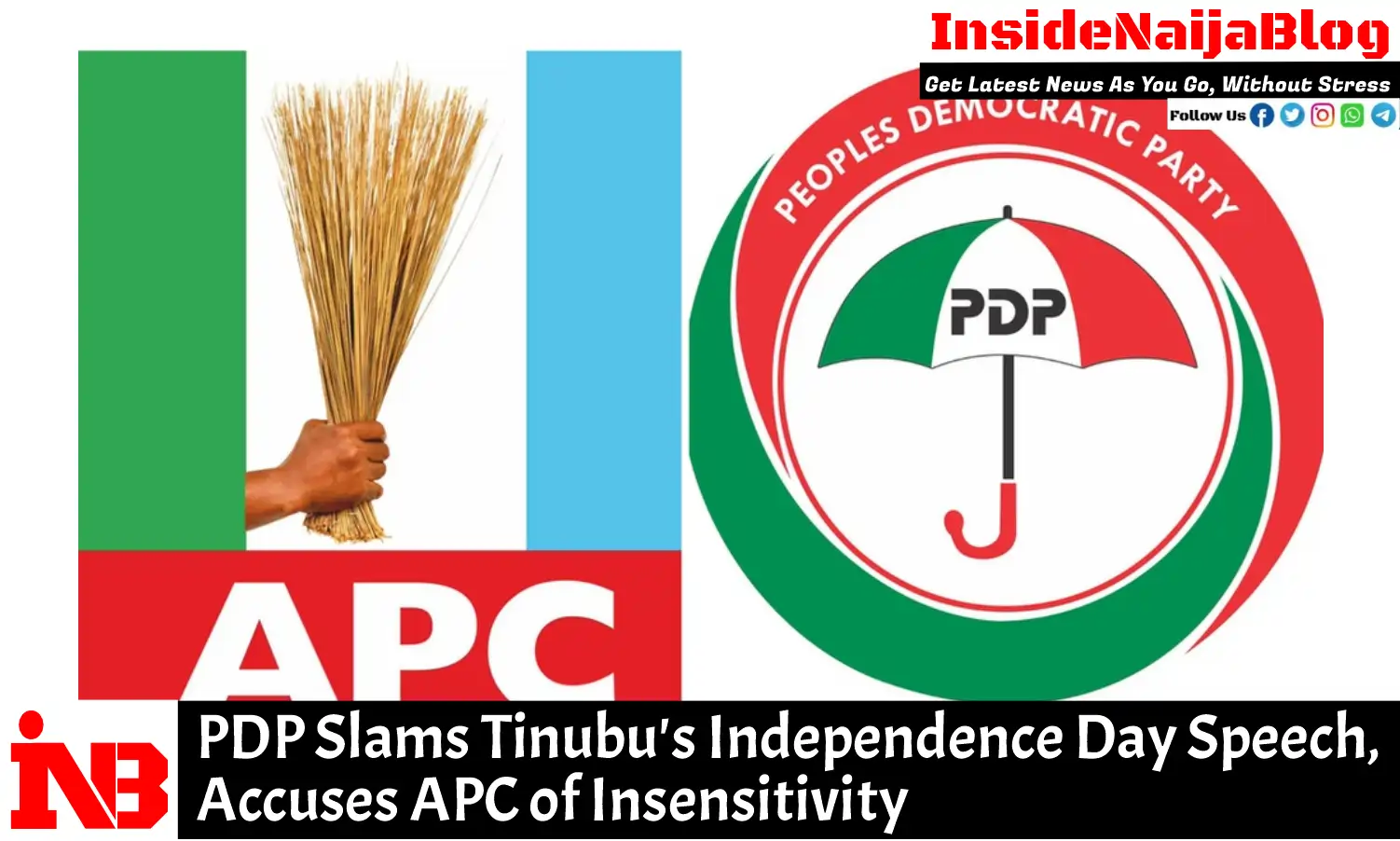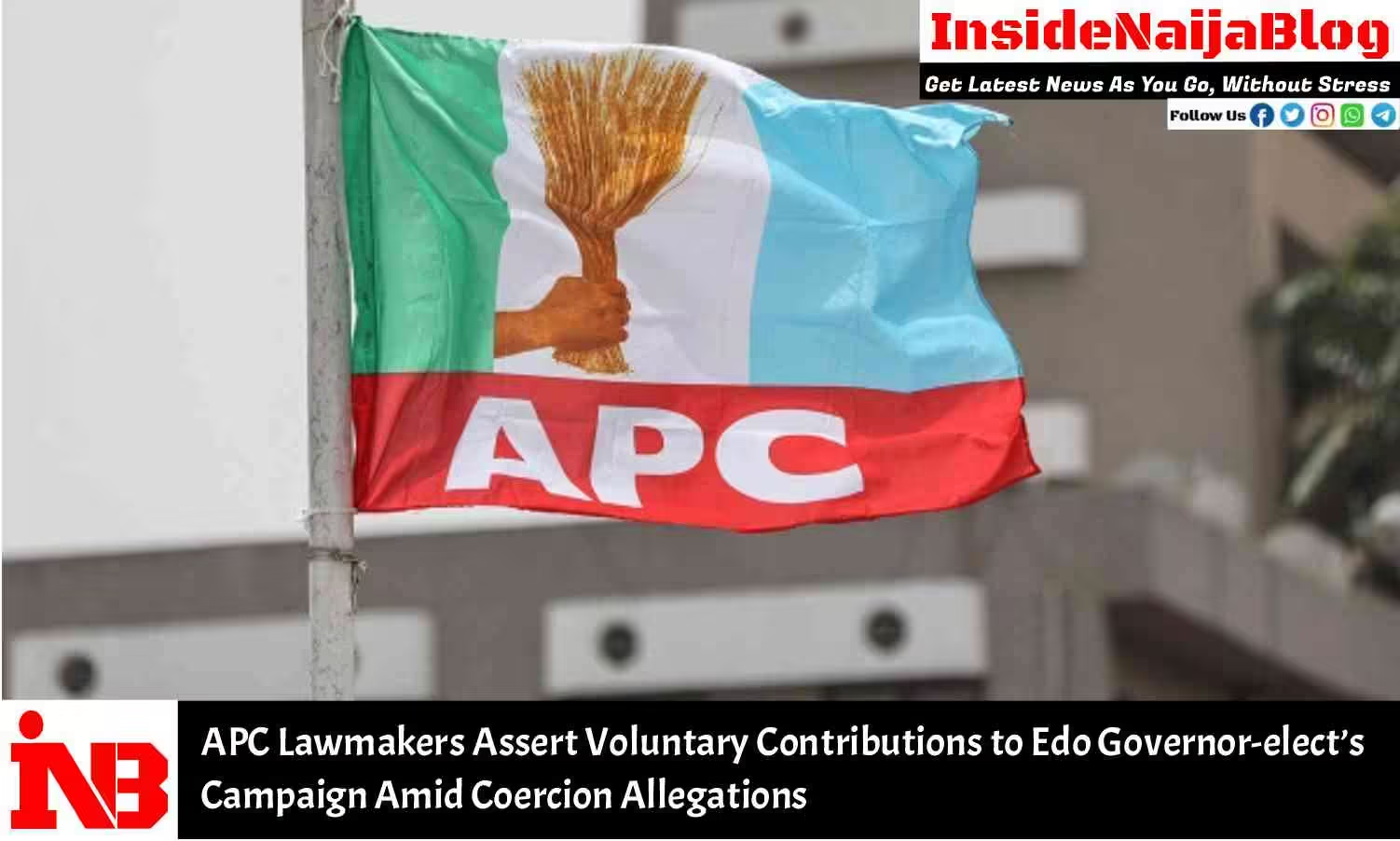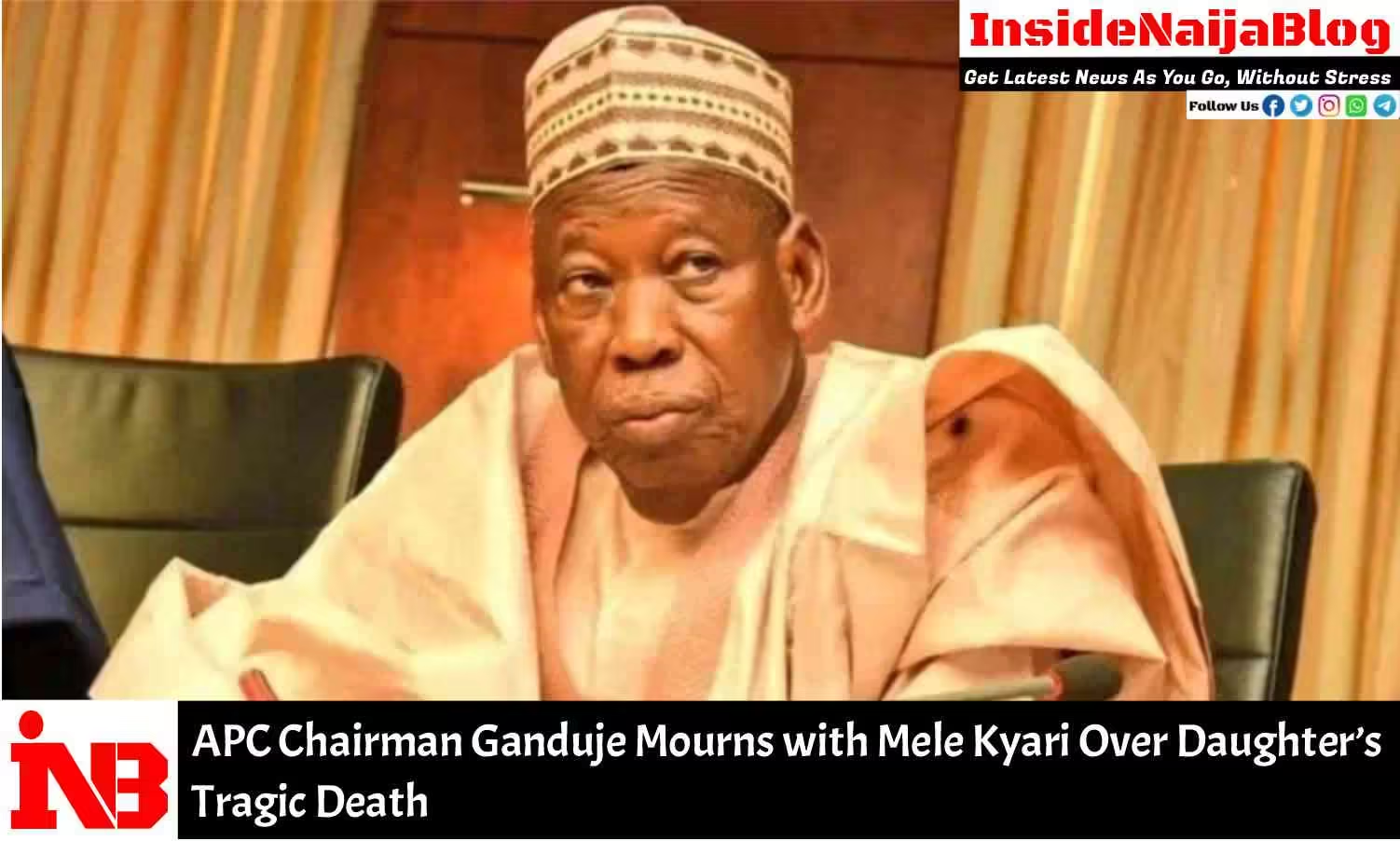The Peoples Democratic Party (PDP) has strongly criticized President Bola Tinubu for what they describe as misleading claims in his 64th Independence Day speech, asserting that the address highlights the ruling All Progressives Congress’s (APC) disregard for the struggles faced by ordinary Nigerians. In a scathing response, the PDP claimed that the speech failed to address the pressing economic and security challenges currently afflicting the nation, thus illustrating a disconnect between the government’s narrative and the realities on the ground.
In a statement released on Tuesday, Debo Ologunagba, the PDP National Publicity Secretary, characterized Tinubu’s speech as a “complete waste of time.” He pointed out that the address lacked substance, particularly in its treatment of critical issues like economic hardship, rampant unemployment, and extreme poverty that millions of Nigerians are grappling with daily. Ologunagba expressed disappointment that the President’s remarks seemed to downplay the severity of these challenges and offered little in terms of actionable solutions.
During his national broadcast on Tuesday morning, President Tinubu emphasized the urgency of reforming Nigeria’s political economy and defense mechanisms to ensure the country’s progress and stability. He described the situation facing the nation as a “dizzying crossroads,” where citizens must choose between pursuing necessary reforms or continuing down a path that could lead to national collapse. Tinubu asserted that his administration had successfully attracted over $30 billion in foreign direct investment in the past year, framing this as evidence of his government’s effectiveness.
However, the PDP countered that such claims are detached from the day-to-day struggles of Nigerians, describing the President’s assertions as “lethargic and windy rhetoric of false performance claims and empty promises.” They lamented that the speech failed to acknowledge the pervasive economic distress and hunger that has, in some instances, incited public protests. The opposition party criticized the President’s promises of micro-economic improvements and lower living costs, arguing that these assertions stand in stark contrast to the reality of rising fuel prices and escalating unemployment.
The PDP further urged President Tinubu to adopt a more hands-on approach in understanding the plight of Nigerians. They suggested that he engage directly with citizens, visit markets, and interact with youth in urban areas to gain insight into their true circumstances rather than relying solely on potentially fabricated statistics from his officials. This call for engagement was underscored by the PDP’s assertion that the speech omitted any acknowledgment of the erosion of electoral credibility and the curtailment of citizens’ rights under the APC-led administration, indicating a troubling trend that threatens the very fabric of democracy.
In response to the PDP’s criticisms, the APC defended the President’s address and dismissed the opposition’s remarks as an expression of frustration. Bala Ibrahim, the APC Director of Publicity, described the PDP as a party desperately seeking relevance. He argued that instead of acknowledging their past failures, the PDP chose to undermine the achievements of the current administration. Ibrahim claimed that peace and stability have returned to Nigeria under the APC, contrasting this with the turmoil experienced during the PDP’s tenure, which he said made it difficult for a sitting President to address the nation.
Ibrahim asserted, “For the PDP, rather than burying their heads in shame, they claimed the President’s speech is empty. What the PDP should understand is that since their departure from the political scene, sanity has returned to Nigeria, and peace has been restored to the country and to Abuja, the seat of power.” He concluded that the PDP’s criticisms are simply an afterthought, reacting to the achievements of the APC that they failed to accomplish during their time in power.
This exchange reflects a deepening political divide in Nigeria, with both parties firmly entrenched in their positions. As the country navigates its complex socio-economic landscape, the contrasting narratives of the ruling APC and the opposition PDP will likely continue to shape public discourse in the lead-up to future elections.



